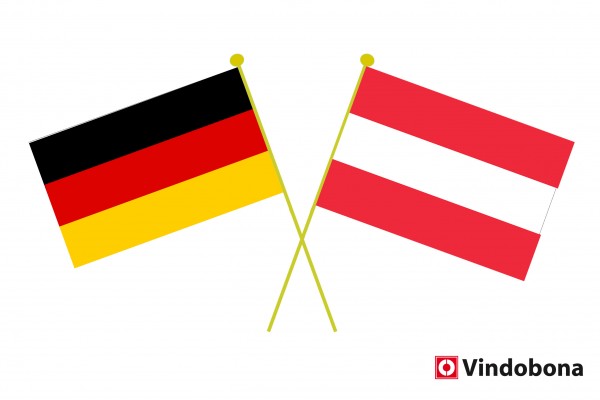Germany Extends Entry Ban for Tyrol
The German government has decided to extend its entry ban for Tyrol until March 3, 2021. The German Health Minister Spahn sees this step as "necessary" in order to prevent the South African Covid-19 mutation from spreading in Germany. Austria's government and the EU Commission demand more coordination and dicussion.
 The German and Austrian relations are currently being tested due to the German entry ban for Tyrol. / Picture: © German and Austrian crossed flags by Vindobona
The German and Austrian relations are currently being tested due to the German entry ban for Tyrol. / Picture: © German and Austrian crossed flags by Vindobona
Restricting entries into Germany is "necessary" for another 14 days, German Health Minister Jens Spahn said.
Strict rules on entries into Germany from so-called virus-variant areas such as Tyrol have been extended until March 3.
Germany's Health Minister Spahn had sent a corresponding cabinet bill to the other members of the government. The previous version of the regulation had been limited until February 17, 2021.
Entry into Germany is only allowed for people who hold German citizenship, drive a truck, are on their way to a funeral or a doctor's appointment, belong to a systemically relevant occupational group - and have a negative Covid-19 test.
The German side specified which occupations it considers "systemically relevant."
The definition is broad and based on a recommendation from the EU Commission. Companies have until February 17, 2021, to register commuters with district offices.
Furthermore, anyone carrying a negative test can drive from Tyrol to Salzburg without any problems.
The Austrian and Tyrolean government criticizes the bureaucratic effort, but is relieved about the concession.
Berlin made no concessions for hauliers: it insists that truck drivers need a negative test. Austria therefore fears a backlog at the border and therefore controls already at the Brenner Pass, which in turn upsets the Italians.
Meanwhile, the the European Commission has insisted on cross-border coordination.
"Member states have agreed on a common approach to handle possible restrictions on free movement due to the Covid-19 pandemic in a coordinated way," an EU Commission spokesman said in Brussels, referring to a joint EU Council recommendation initiated by the commission.
That recommendation, which was updated recently because of new Covid-19 variants and high numbers of new infections, is the compass for all member states, he said.
The issue will also be on the agenda at the upcoming EU General Affairs Council on February 23.



